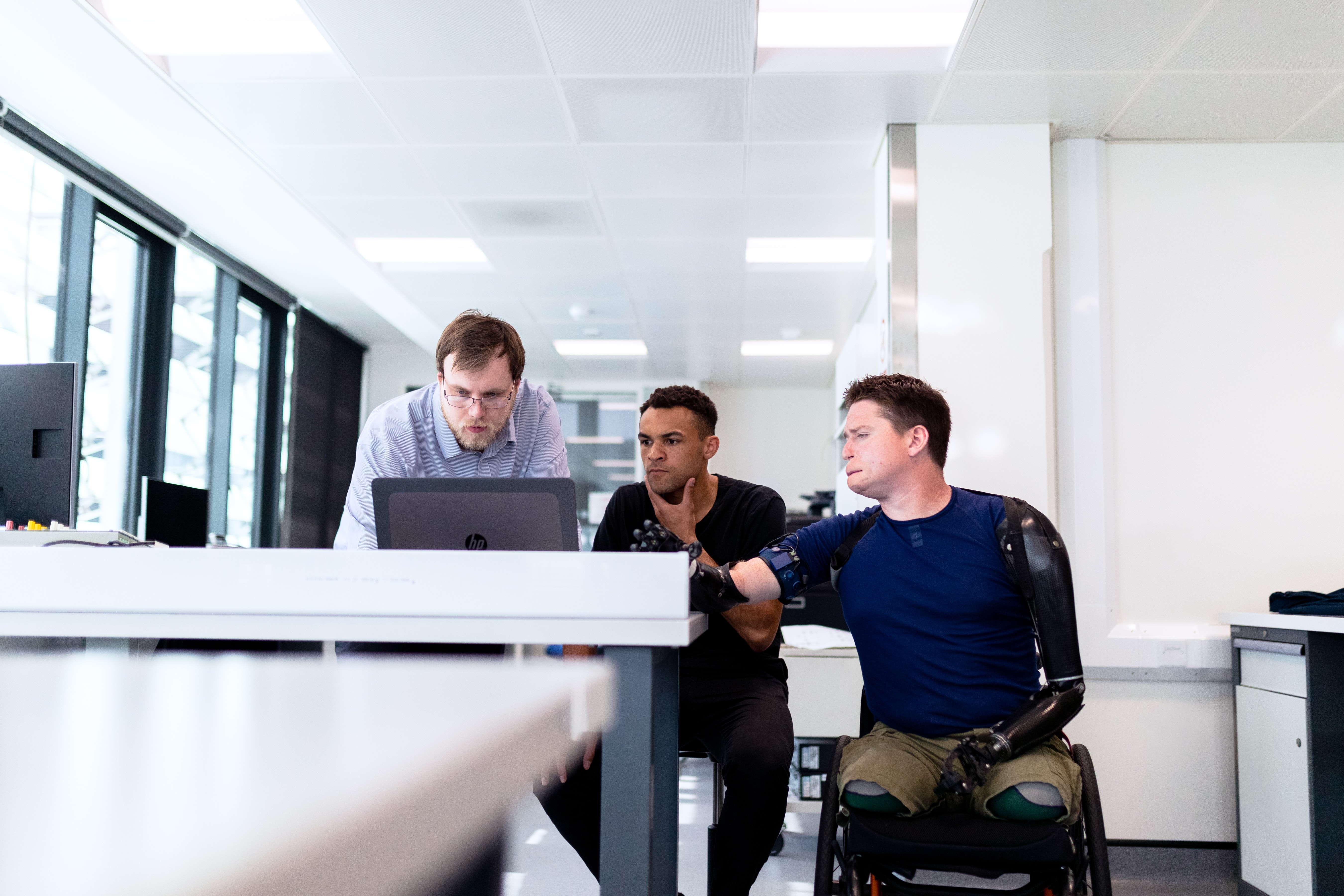 Accenture conducted a global survey of 6,000 employees with disabilities, 1,748 executives (of whom 675 have disabilities) and completed 50 video interviews. Their report (Getting to Equal 2020: Disability Inclusion research) shows that most persons with disabilities feel shut out in the workplace at some point in their careers. Employees with disabilities are 27% less likely to feel “included” in the workplace and 60% more likely to feel “excluded,” compared with the average.
Accenture conducted a global survey of 6,000 employees with disabilities, 1,748 executives (of whom 675 have disabilities) and completed 50 video interviews. Their report (Getting to Equal 2020: Disability Inclusion research) shows that most persons with disabilities feel shut out in the workplace at some point in their careers. Employees with disabilities are 27% less likely to feel “included” in the workplace and 60% more likely to feel “excluded,” compared with the average.
The researchers also found that progress toward the goal of disability inclusion correlates with greater advancement potential for all employees and with an organization’s ability to innovate and accelerate growth. I invited employers and employees with disabilities to share their experiences.
Dale Reardon, CEO and co-founder of Travel For All has a disability and uses a seeing eye dog. Reardon says that “employers aren't recording and measuring the participation of disabled people as a minority group - and if you don't measure it, you can't improve it and see whether any program is working. Worse still, and based on my experience, many employers bring disabled people onboard to the company and use us as a PR tool without providing equal and meaningful training and advancement opportunities. It is not enough to bring disabled people into a business at entry-level positions; they are also required at management and executive levels.”
Rolf Bax, Chief Human Resources Officer, Resume.io makes the effort to employ people with disabilities. Bax says, “I have seen first hand how greater progress toward better disability inclusion correlates with more advancement potential across the board,” he said. “This is because becoming more empathetic to the needs of disabled workers often spurs a profound philosophical change within many organizations.”
Emily Deaton said, “As a disabled woman who has worked at several companies, I've learned that disability inclusion often isn't something employers think about unless it is specifically brought up by a disabled person. In the past, when accommodations were made, I felt as if I should be immensely grateful, when in reality, I was just trying to advocate for myself and level the playing field so I could work the same way my able-bodied peers did.”
Deaton provides an example of her personal experience. “I pass out if I stand too long and my joints are prone to dislocating. Even when small adjustments were made, such as when I sat down to give a presentation, I felt as if all the attention shifted to what I couldn't do rather than what I was capable of. Instead of quietly and quickly telling me it was fine to sit, a big to-do was made out of the situation, which ultimately made me feel embarrassed and as if I was asking for a major favor rather than a reasonable, easy accommodation. I felt isolated from my peers.”
Over time, Deaton became better at speaking for herself. She advocates for sensitivity training for disabilities in the workplace now and makes an effort to help other disabled people feel confident about themselves. “Disabled people have so much to offer in all workplaces,” said Deaton, “and excluding a person with a disability doesn't just hurt that individual: it hurts everyone in the workplace, too.”
Bax agrees. “Once an organization commits to being more accommodating of difference, it is like a switch goes off in the minds of management and they are now able to better think outside of the box when it comes to human capital recognition and allocation. People who were previously overlooked for one reason or another tend to get more of a fair shake in disability-friendly companies,” he added.
This is why organizations like 2gether International exist. CEO Diego Mariscal said “People with disabilities have to figure out how to solve problems all the time. 2Gether-International harnesses the innate entrepreneurship skills of people with disabilities and helps disabled entrepreneurs succeed.”
Tina Arnoldi, MA is a marketing consultant and freelance writer in Charleston SC. Learn more about her and connect at TinaArnoldi.com